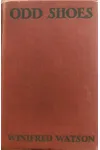Picture a British storyteller who spun a whimsical tale of transformation in just six weeks—meet Winifred Watson! Born in Newcastle, this charming author captured the hearts of readers with her 1938 novel, Miss Pettigrew Lives for a Day, a frothy blend of humor and heart. Watson’s six novels, steeped in mid-20th-century England’s class dynamics and women’s experiences, offer a delightful glimpse into a world where wit meets social commentary.
Despite her relatively brief writing career, Watson’s knack for crafting vivid characters and playful narratives left an indelible mark. Her stories, often compared to a Fred Astaire film for their light-hearted charm, invite readers to laugh, reflect, and cheer for underdogs finding their sparkle.
The Making of Winifred Watson
Winifred Eileen Watson was born on October 20, 1906, in Whitley Bay near Newcastle, to a middle-class family. Her father owned shops catering to the working class, fostering Watson’s lifelong fascination with class tensions. Educated at St Ronan’s boarding school, she was set to attend university like her sisters, but the Great Depression hit, forcing her to work as a typist to support her family. In a twist of fate, this mundane job became her creative springboard—she wrote her first novel, Fell Top, during office downtime, sparked by a dare from her brother-in-law to pen something better than the ‘rubbish’ he read.
Watson’s early life in Newcastle, a gritty yet vibrant city, shaped her stories. Married in 1936 to Leslie Pickering, a timber firm manager, she balanced domestic life with writing, even as World War II and motherhood later paused her career. Her resilience and humor shone through, making her a unique voice in British literature.
Winifred Watson’s Unforgettable Stories
Watson’s bibliography, though slim, sparkles with variety. Her most famous work, Miss Pettigrew Lives for a Day (1938), follows a prim governess thrust into the glamorous world of a nightclub singer. Written in six weeks, this Cinderella-esque tale blends screwball comedy with sharp insights into women’s societal roles, earning instant success in Britain, Australia, and the US. Its 2008 film adaptation, starring Frances McDormand, brought Watson’s wit to new audiences.
Her other novels, like Fell Top (1935), a racy Northumbrian saga, and Odd Shoes (1936), explore rural settings and family tensions, showcasing her versatility. Upyonder (1938) and Hop, Step, Jump (1939) continue her countryside dramas, while Leave and Bequeath (1943), a psychological mystery, marked her final work. Watson’s style—vivid, humorous, and socially astute—deftly wove women’s struggles and class dynamics into engaging narratives, often with a nod to second chances.
Though Miss Pettigrew stands out for its urban flair, Watson’s countryside novels reflect her Newcastle roots, offering a grounded counterpoint to her more fantastical hit. Her ability to craft relatable yet aspirational heroines made her stories timeless, even if some 1930s-era references, like casual prejudices, haven’t aged well.
Why Winifred Watson Matters
Winifred Watson’s legacy lies in her ability to make readers smile while subtly challenging societal norms. Her focus on women’s agency—whether through Miss Pettigrew’s transformation or rural heroines navigating class barriers—anticipated later feminist themes. Persephone Books’ 2000 reissue of Miss Pettigrew revived interest, cementing her as a rediscovered gem among 20th-century women writers.
Watson’s influence extends beyond literature; her stories, with their joyous rebellion against convention, resonate with anyone craving a second chance. Her brief career, cut short by wartime and family demands, only adds to her mystique—a writer who burned brightly, then stepped away, leaving a small but sparkling oeuvre.
- Birth Date: October 20, 1906
- Key Works: Miss Pettigrew Lives for a Day, Fell Top, Odd Shoes, Leave and Bequeath
- Notable Adaptation: 2008 film, Miss Pettigrew Lives for a Day
Snag Miss Pettigrew Lives for a Day and dive into Winifred Watson’s whimsical world of humor and heart!



